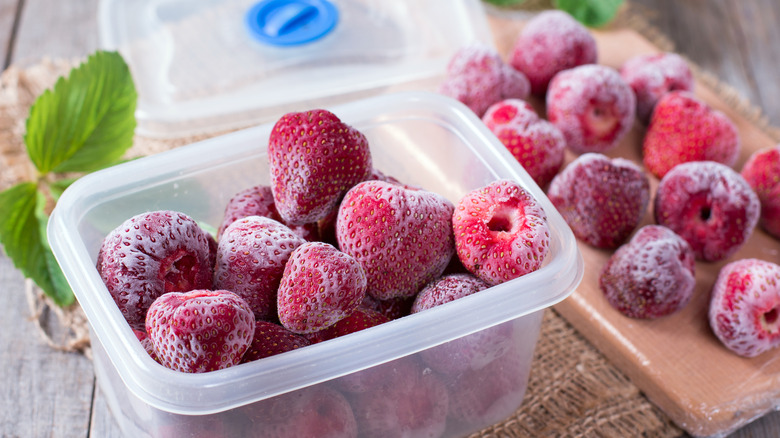Costco's Frozen Strawberry Recall: The Hepatitis Risks You Need To Know
According to a March 16 FDA announcement, California Splendor has recalled select lots of its 4-lb. bags of Kirkland Signature Frozen Organic Strawberries due to the concern of a potential Hepatitis A exposure. This frozen fruit was sold at Costco warehouses in Los Angeles and Hawaii, as well as two San Diego Costco business centers. (To clarify, Costco business centers are different from warehouse stores. Generally, the business centers sell larger items for workplace settings.)
While California Splendor has recalled particular frozen strawberries sold at Costco business centers, Healthday adds that additional food stores have announced frozen strawberry recalls as well. Frozen organic strawberries packaged by Scenic Fruit and sold at Aldi and Trader Joe's have also been recalled. The FDA recommends throwing the fruit out or returning it to the place of purchase.
The FDA notes that Hepatitis A was not found on these frozen strawberries; the food recall is out of caution.
Are Hepatitis A outbreaks common in strawberries?
According to the FDA, the most common foodborne Hepatitis A infections come from berries, raw vegetables, salads, and shellfish. Berries can be a common culprit of this illness because the delicate fruit needs to be hand-harvested. Any potential contamination comes from field workers who transfer the virus to the fruit during the picking process. When these statements are issued, it's best to proceed with caution and not ingest any potentially contaminated products.
As the Mayo Clinic explains, this type of liver infection can cause inflammation of the organs. The virus can spread through contaminated food or close contact with an infected person. Symptoms can present several days after exposure and can include digestion issues, fever, and yellowing of the skin. Although some people might have mild exposure issues, it's best to check with a medical professional if symptoms arise. To better limit exposure to this particular virus, proper hygiene and hand-washing are encouraged.
Food Safety News notes that the FDA saw a 2.2% rate increase of food recalls in 2022 compared to 2021. Of those recalls, produce was the third most common, with 12 recalls in 2022.

